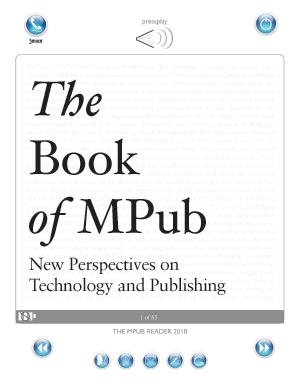May 14th, 2013
The courses that convey traditional publishing knowledge are well-established. They’re mainly the Masters of Publishing courses at various universities around the U.S., Canada and the U.K. They’ve been turning out employable graduates for years now, women and men well-versed in publishing as we’ve understood it in the modern era. With the pace of change now so rapid it’s a great challenge for the educators responsible for these courses. In getting to know some of them I see their constant concern with keeping their curriculum up to date.
 Last fall I interviewed John Maxwell, Associate Professor in the Publishing Program at Simon Fraser University (SFU) in Vancouver, BC. As John pointed out, SFU offers the only masters program in Canada, and they graduate some very bright and capable students. The Master of Publishing program was set up in the early 1990s at a time when the Canadian publishing industry was stable and profitable. The program was immediately successful because it invited participation from a wide variety of people in the industry. “At that time we saw the purpose of the program as training people into the existing industry,” says Maxwell. “We took direct input from the industry as to what they needed in new personnel.”
Last fall I interviewed John Maxwell, Associate Professor in the Publishing Program at Simon Fraser University (SFU) in Vancouver, BC. As John pointed out, SFU offers the only masters program in Canada, and they graduate some very bright and capable students. The Master of Publishing program was set up in the early 1990s at a time when the Canadian publishing industry was stable and profitable. The program was immediately successful because it invited participation from a wide variety of people in the industry. “At that time we saw the purpose of the program as training people into the existing industry,” says Maxwell. “We took direct input from the industry as to what they needed in new personnel.”
The other force at work is the students and their view of the kind of education that will provide maximum value (the courses are not inexpensive: over $14,000 for 4 semesters at SFU). “Over half of the students want to be literary editors when they first join the program,” Maxwell points out. “But then they get hired for marketing jobs or to solve data problems because that’s where the demand is. The publishers don’t know exactly what they need. They hire someone to solve an immediate problem, and that person may go on to play many different roles.”
Digital is changing publishing and the MPub course is responding. “We’ve been through the early days of digital publishing, where things look awful compared to printed books and magazines, but I think that’s starting to change,” Maxwell says. “As my colleague Roberto Dosil likes to point out, right now we’re in a period where technology is moving ahead and it’s outpacing craft. We’ve seen this happen before. Eventually craft catches up again. I think we’re trying to help pull the fine craft tradition of publishing forward into the new technological environment.”
The goals of the program have changed. As Maxwell sees it “our original dream in the program was that the graduates would rise to the top of major publishing houses. These days our target is to help them see themselves as self-sufficient agents — perhaps as employees, or as freelancers, or as entrepreneurs — in a rapidly changing world.”